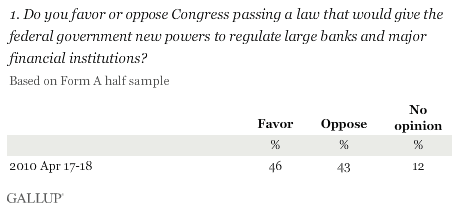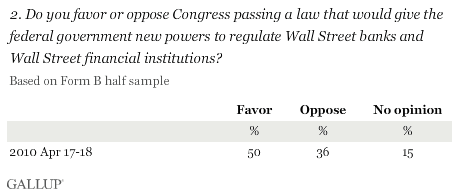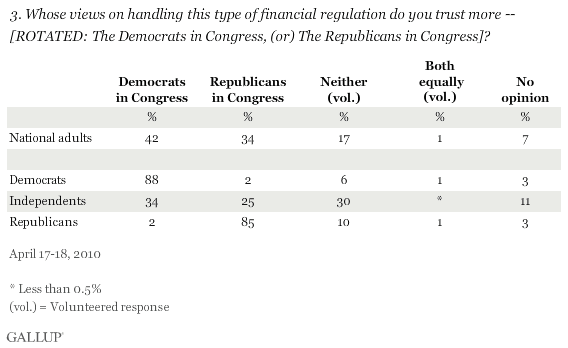PRINCETON, NJ -- Americans are about evenly divided on the merits of giving the federal government new powers to regulate large banks and major financial institutions; however, they offer greater support when the issue is more specifically framed as regulating "Wall Street banks."
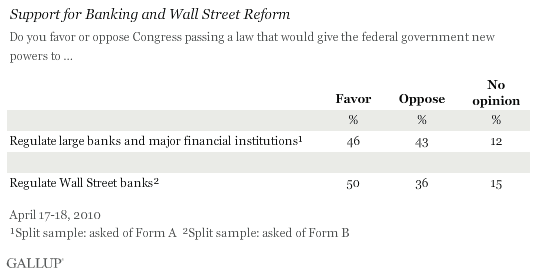
When Wall Street is not mentioned, net public support (percentage in favor minus percentage opposed) for banking reform legislation is +3 points, but when it is mentioned, net support is +14.
Gallup measured support for enhanced federal regulation of banking using both wordings in its April 17-18 Daily tracking. A random half-sample of respondents was asked the "Wall Street" wording; the other half was asked about banks and major financial institutions, generally.
On both questions, Democrats are more likely than Republicans to support banking reform. Seven in 10 Democrats favor the proposed new federal regulatory powers, regardless of the wording. By contrast, Republicans show greater support for reform when "Wall Street" is invoked than when it is not (35% vs. 22%).
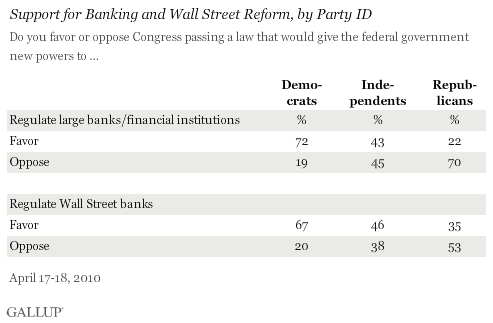
Democrats Enjoy Slight Political Edge
Connecticut Sen. Chris Dodd is crafting a major financial regulatory reform bill that seeks to prevent another financial meltdown; the bill is expected to come to the Senate floor within the next week. Dodd is reportedly angry that his bill has yet to earn any Republican support -- Republicans say the bill does not close all the loopholes needed to prevent further financial bailouts -- suggesting it could be headed for an acrimonious party-line vote.
Gallup's new polling suggests the Democrats may hold a slight advantage in the looming public relations battle over Senate Bill 3217, given that, by 42% to 34%, Americans favor congressional Democrats over congressional Republicans to handle "this type of financial regulation." The Democrats' advantage stems mainly from the slight preference political independents have for that party (34% vs. 25%). However, the largest segment of independents -- 41% -- has no party preference on the issue.
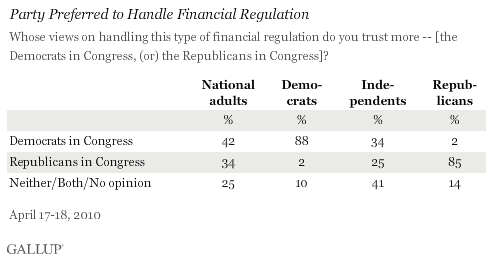
Two of the questions were asked of a random half sample of respondents on the Gallup Daily tracking survey for two nights. Question 1, asked of Form A, is based on interviews with 484 national adults. Question 2, asked of Form B, is based on interviews with 540 national adults. Results for both forms have an associated margin of error of ±5 percentage points.
Interviews are conducted with respondents on landline telephones (for respondents with a landline telephone) and cellular phones (for respondents who are cell phone only).
In addition to sampling error, question wording and practical difficulties in conducting surveys can introduce error or bias into the findings of public opinion polls.
